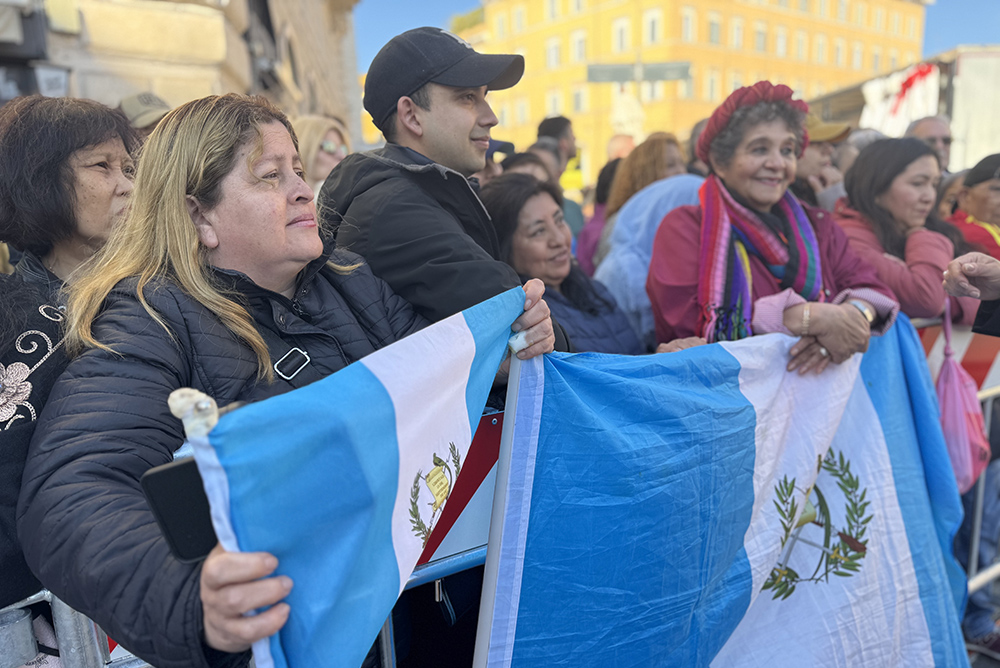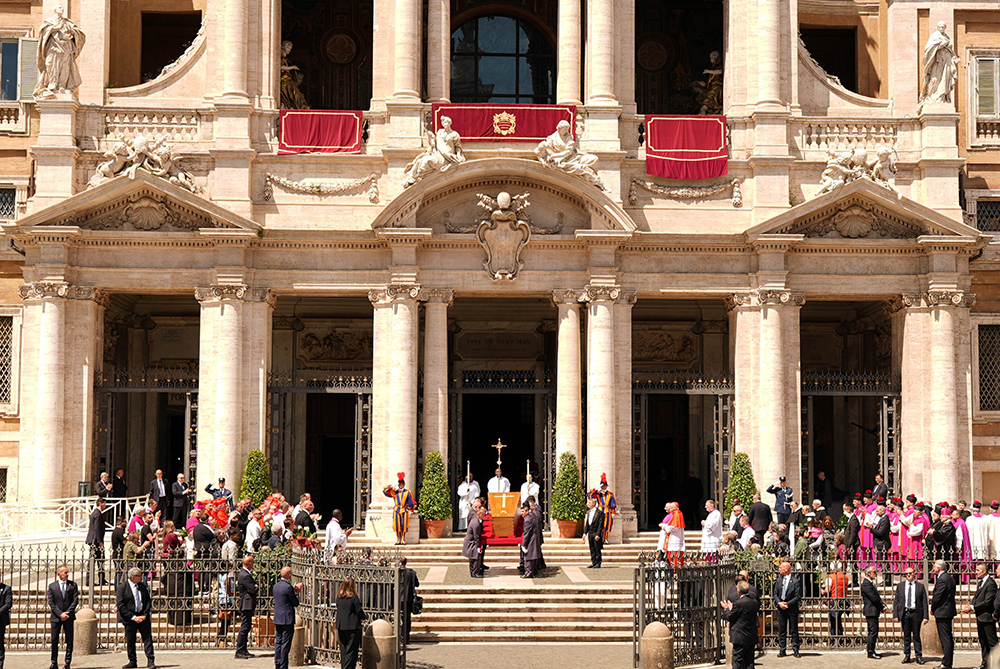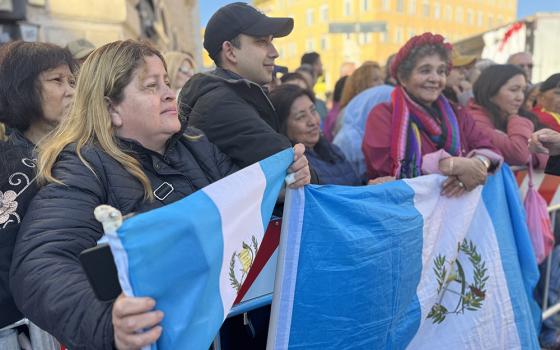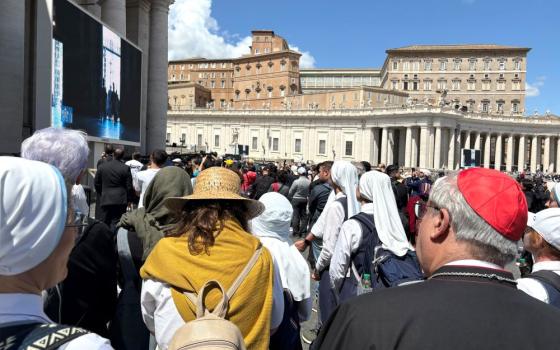
A group of Guatemalan migrants to Italy hold the flag of their country near the Basilica of St. Mary Major in Rome April 26, 2025, just before the arrival of Pope Francis' coffin. They said they feel they have not only lost a religious leader but also a friend and defender. (NCR photo/Rhina Guidos)
Javier Urbina said he knew it would be a sacrifice to forgo sleep, but along with fellow Guatemalan migrants living in Rome, he wanted nothing more than to be able to feel close to Pope Francis one last time as his coffin entered the Basilica of St. Mary Major April 26.
"We haven't slept … we've been here since 3:30 a.m.,"Urbina said. "He knew how to speak to each one of us with acts of love, to those of us who are migrants … those of us who are marginalized."
Along with a group of women, Urbina held part of a Guatemalan flag draped over a fence near a spot where the white pickup truck dropped off the pope's coffin in front of the basilica.
Last December, Urbina said he was surprised to receive an invitation for a Mass to celebrate the feast of Our Lady of Guadalupe at the Vatican. He accepted.
"I had no idea the pope would be there," he said, calling it unthinkable that the pope would be up close with them.
Advertisement
In losing Francis, some migrants like Urbina feel they haven't just lost a religious leader, but a friend and defender.
"In a place like Italy, which has a lot of migrants, he supported us a lot, a lot, just like he supported anyone who needed help," said Maria Vicente, who held the flag with Urbina. "For him, we were all equal in his eyes, from those at the top to those at the bottom."
In his homily during the pope's funeral Mass at St. Peter's Basilica, Cardinal Giovanni Battista Re, dean of the College of Cardinals, mentioned Francis' love, commitment and defense of refugees, migrants and asylum seekers, while politicians such as U.S. President Donald Trump and Italy's Prime Minister Giorgia Meloni, who have cracked down on migrants, listened.
Urbina said he hoped the next pope will continue Francis' defense of migrants but also said there was something unique about the Argentine pope, whose own family had gone through the experience of leaving their home country.

Pallbearers carry the casket of Pope Francis into the Basilica of St. Mary Major in Rome April 26, 2025, ahead of his burial. The pope requested to be buried in the Marian basilica following his funeral Mass at the Vatican. (CNS/Lola Gomez)
For Oblate of the Divine Love Sr. Jennifer Padilla Núñez, Francis left behind a powerful example on immigration that many Catholics won't forget.
"We feel that compassion," said Padilla, originally from Costa Rica, who watched outside the basilica as other migrants waved goodbye to someone they considered a friend. "We know it's the same experience and that sense of providing welcome that the pope felt."
In the crowd, Joana Valenzuela, an Argentine who migrated to Italy a few months ago, said what the pope did is probably difficult to repeat, not just in terms of immigration, but in his closeness to those who experience a sense of being outcast. She draped herself in the flag of her — and the pope's — home country of Argentina.
"He set the bar too high," she said.
The National Catholic Reporter's Rome Bureau is made possible in part by the generosity of Joan and Bob McGrath.






